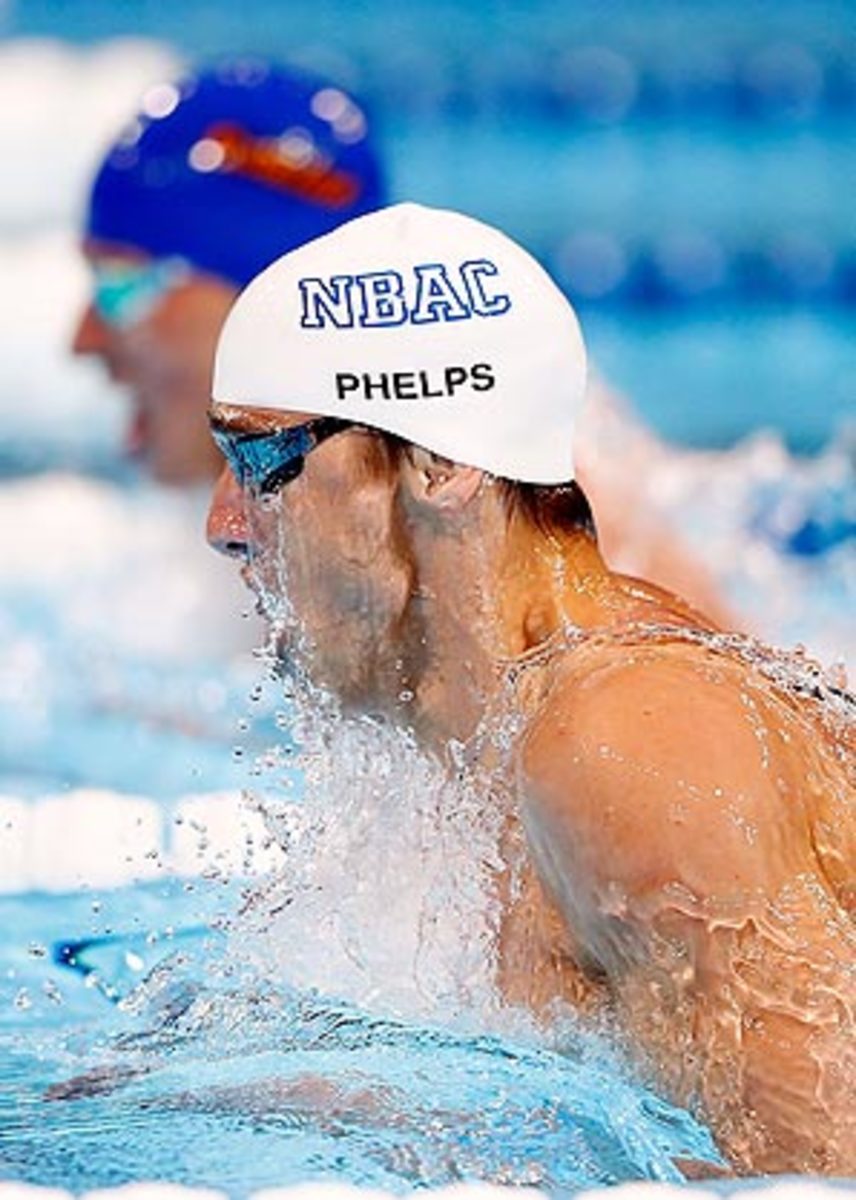Greatest rivalries from Games past
The rivalry between Michael Phelps and Ryan Lochte should light up the pool during the London Games. Perhaps no other pair of athletes presents as compelling a confrontation in 2012 as the 1 and 1A of swimming. They will clash in two races, be relay mates in others and presumably add to their robust medal totals. Can Lochte rally to beat Phelps in the 200 IM after Phelps beat him at the Olympic Trials last month? How will these Olympics impact their legacies? We'll have some answers soon, but until then, here are some of the greatest Olympic rivalries from years past:
Jesse Owens vs. Lutz Long, long jump, 1936 Berlin Games:
It takes a leap of faith to embrace every detail of the feel-good tale that unfolded in the long jump competition at the Berlin Olympics in 1936, but it has been re-told as a beacon of sportsmanship against a backdrop of tyranny. In the qualification round, U.S. star Jesse Owens had already fouled twice and was dangerously close to not even qualifying for the final of an event he was heavily favored to win. So at a time when Adolf Hitler was using the Games to promote his ideal of an Aryan master race, German jumper Luz Long suggested to Owens that he plan his takeoff well before the demarcation line so he wouldn't foul again. With that advice, Owens qualified safely into the final and then won his second of four gold medals with a winning leap of 26 feet, 5 5/16 inches. Long won the silver medal and later perished in World War II.
Australia vs. U.S. (swimming), Games throughout history:
This duel in the pool has become a quadrennial clash of words and wills. In the U.S. corner, you've had Mark Spitz, Janet Evans and Michael Phelps. On the Australian side, you've had Dawn Fraser, Shane Gould and Ian Thorpe. Before the Sydney Games in 2000, U.S. sprinter Gary Hall said he thought his teammates would smash the Aussies like guitars. But the Australian 4x100-meter relay team beat the Americans and then taunted Hall by stroking imaginary guitars poolside after their triumph. Still, the numbers have generally favored U.S. swimmers, who have finished atop the swim medal count at four straight Olympics, with the Australians finishing second each time.
Anky Van Grunsven (Netherlands) vs. Isabell Werth (Germany), dressage, 1992 Barcelona Games to 2008 Beijing Games:
While it doesn't get the attention of some other frontline events, the dressage portion of the equestrian competition is home to the longest standing one-on-one rivalry. Werth and Van Grunsven have finished one-two in three of the last four Olympics, with Van Grunsven wining twice and Werth taking gold in 1996. Van Grunsven also won gold in 2004, her second of three straight Olympic triumphs, when Werth did not compete. But Werth has enacted her share of redemption in the team competition. Her German squad has won the Olympics at five straight Games. Each year Werth has participated (1992, 1996, 2000, 2008), Van Grundsven's Dutch have won the silver medal.
Hungary vs. Soviet Union, water polo, 1956 Melbourne Games:
The blood of combat literally spilled into an Olympic pool at the Melbourne Games in 1956 when Hungary defeated the Soviet Union, 4-0, in a semifinal water polo battle that came to symbolize the struggle for freedom in eastern Europe. As tanks rolled into Budapest and many Hungarian players were deciding whether to return to their homelands, the contest between the oppressor and the oppressed became increasingly violent. In the closing minutes, Soviet Valentin Prokopov punched Hungarian Ervin Zador in the face, giving Zador a severe cut over his right eye and causing officials to end the match early. The Hungarians subsequently defeated Yugoslavia to win the gold medal and the Soviets settled for bronze.
Vera Caslavska vs. Soviet gymnastics, 1968 Mexico City Games:
Much like the Hungarians, Czech athletes competing at the 1968 Olympics in Mexico City faced uncertainty once they returned home. Gymnast Vera Caslavska, the reigning Olympic all-around champion, had signed a Manifesto of 2000 Words, objecting to the Soviet presence in her country. As troops stormed into Prague, she left a training camp to avoid capture and was unsure if she would be allowed to compete at the Games. Instead, she was the star of the Olympics, defending her all-around title against a group of powerful Soviets and amassing a total of four gold medals and two silvers. In her final event, she tied for gold on the floor exercise with Soviet Larissa Petrik. As they stood together on the winner's podium during the award ceremony, Caslavska defiantly bowed her head during the playing of the Soviet anthem.






